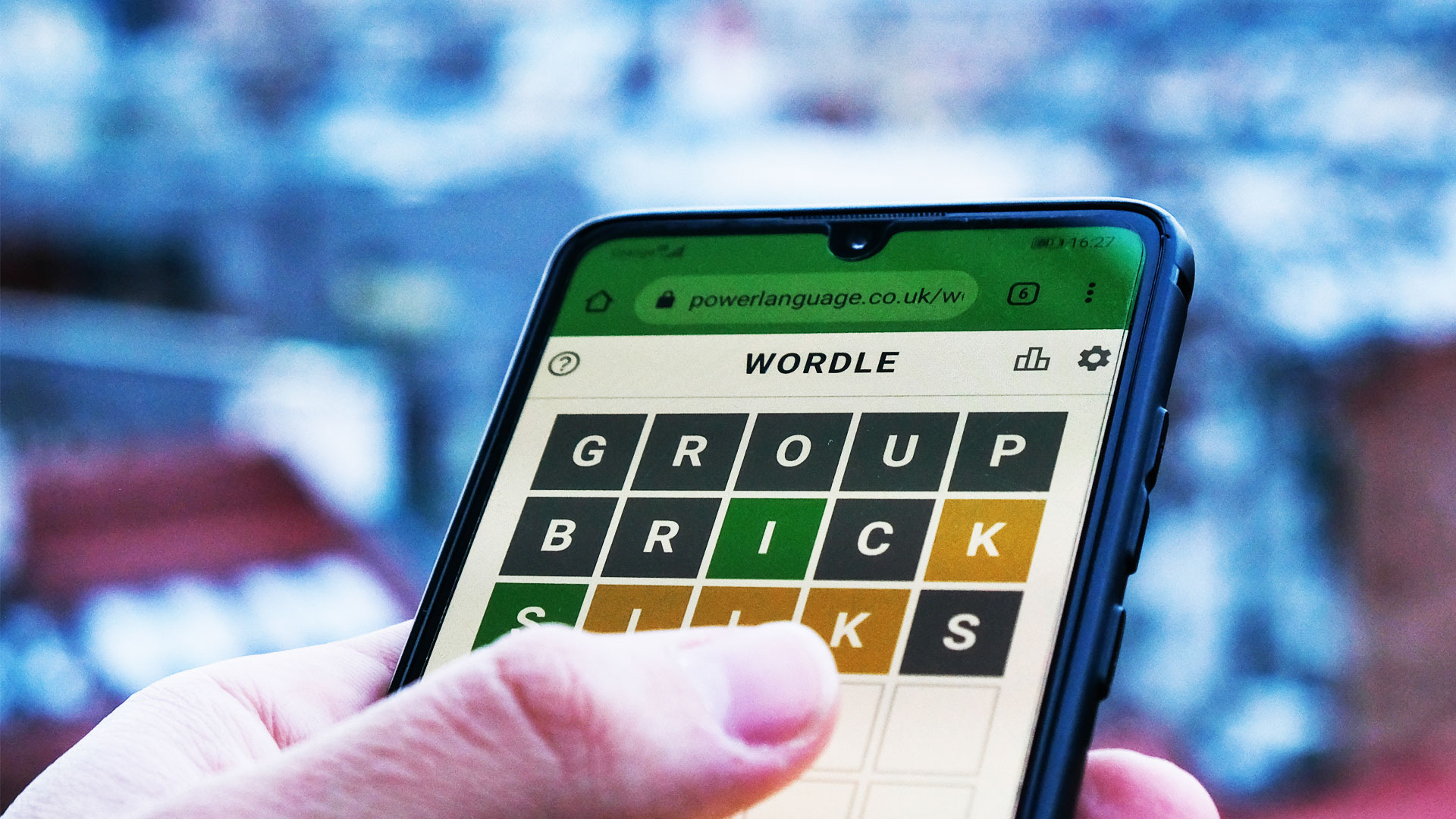Wordle is now more ritual than game - and I'm fine with that
The fad is becoming an institution

Sign up for breaking news, reviews, opinion, top tech deals, and more.
You are now subscribed
Your newsletter sign-up was successful
The global Google trend for Wordle searches tells you all you need to know about the popular word game's current status. Since its massive peak in early February of this year, search interest in the five-letter word puzzle has cascaded along a downward trend that, while not dramatic, is real, significant, and marks a turning point for Wordle's place in the cultural zeitgeist or, to put it in a Wordle-suitable term cultural trend.
At the height of Wordle mania, I wrote a popular story about winning at Wordle every day (sheesh I was a traffic whor-*), and was writing daily "How I solved today's Wordle" pieces. I did the daily solvers until people stopped reading them (a fact evidenced by their less-than-stellar traffic).
There is still a lot of Wordle guidance online, but Wordle has, mostly, faded from the daily conversation. Recently, The New York Times, which bought Wordle in January, launched, in partnership with Hasbro, a Wordle board game. In it, players get a physical Wordle board that looks just like the digital ones. Players then choose a host who comes up with a secret five-letter word and all the players compete to see who can solve it in the fewest number of tries. It'll probably make a decent stocking stuffer.
What I noticed, though, is how little buzz there was around the game launch (even with an exclusive unveiling on The Today Show).
It was then that I realized that Wordle had shifted into something new.
It's, mostly, not about winning
In my home, we still Wordle every day. Oftentimes, my wife and I get into bed and...Wordle next to each other. We're more than a little competitive, crowing when one or the other gets it in under three tries. Neither of us has ever solved the day's Wordle on the first try.
My wife and youngest child often text each other with their Wordle results as a kind of psychic check in. We still live in the same home, but this is a way of saying, "I'm thinking about you."
Sign up for breaking news, reviews, opinion, top tech deals, and more.
The act of Wordleing is not just about the game, anymore. It's just one of the many things we, as a family, connect on (with the notable exception of my son who never Wordles). It is, for us, a form of ritual, just like, say, Thanksgiving Dinner or putting up a Christmas tree together.
And that's worth noting. Wordle started as a white-hot fad, one that steered interest across peoples and genres. Websites that normally covered tech, space, or science were writing about it. People who thought about brain chemistry opined about the impact of Wordle and what playing and solving it does to our brains.
Now it's just another game, like Monopoly, but with something extra.
Because a new Wordle arrives every day, with the trusted dependability of your morning news or coffee, there is always something new in Wordle world. It's well-built for habit.
Habits can be singular - done for yourself and nobody else. But if they are more communal, they become ritual.
That's where Wordle is now. Its daily blank slate beckons you to enter that first five-letter guess. Solving it (or not) is both a singular effort and a communal thing because your Wordle results mean nothing if you can't share them.
We can share them broadly, as I do on Twitter, but that moment in bed where my wife or I raise our fists and shout, "Got it," is somehow special. It's what we share together, every day, and that's Wordle's doing.

A 38-year industry veteran and award-winning journalist, Lance has covered technology since PCs were the size of suitcases and “on line” meant “waiting.” He’s a former Lifewire Editor-in-Chief, Mashable Editor-in-Chief, and, before that, Editor in Chief of PCMag.com and Senior Vice President of Content for Ziff Davis, Inc. He also wrote a popular, weekly tech column for Medium called The Upgrade.
Lance Ulanoff makes frequent appearances on national, international, and local news programs including Live with Kelly and Mark, the Today Show, Good Morning America, CNBC, CNN, and the BBC.